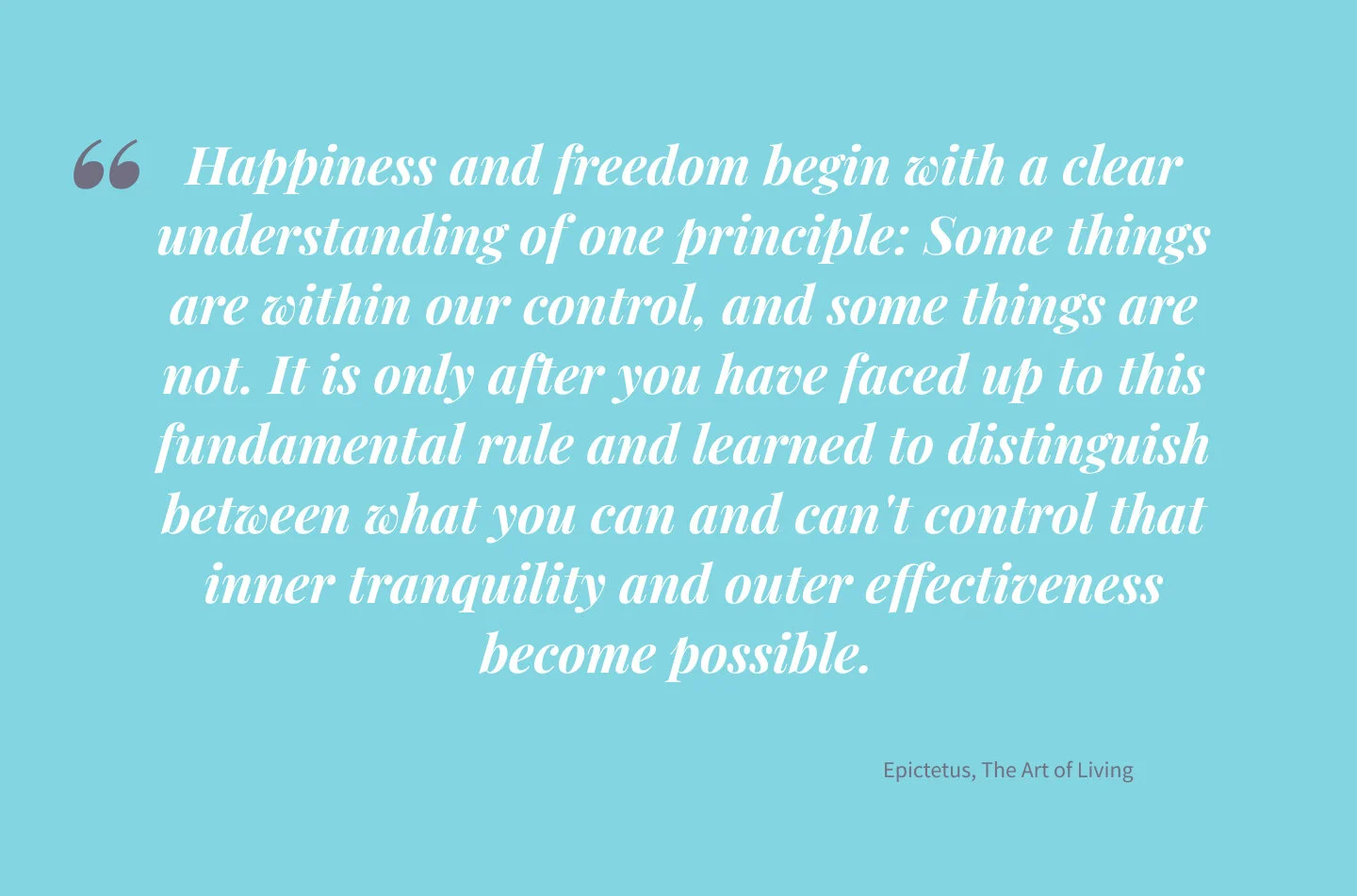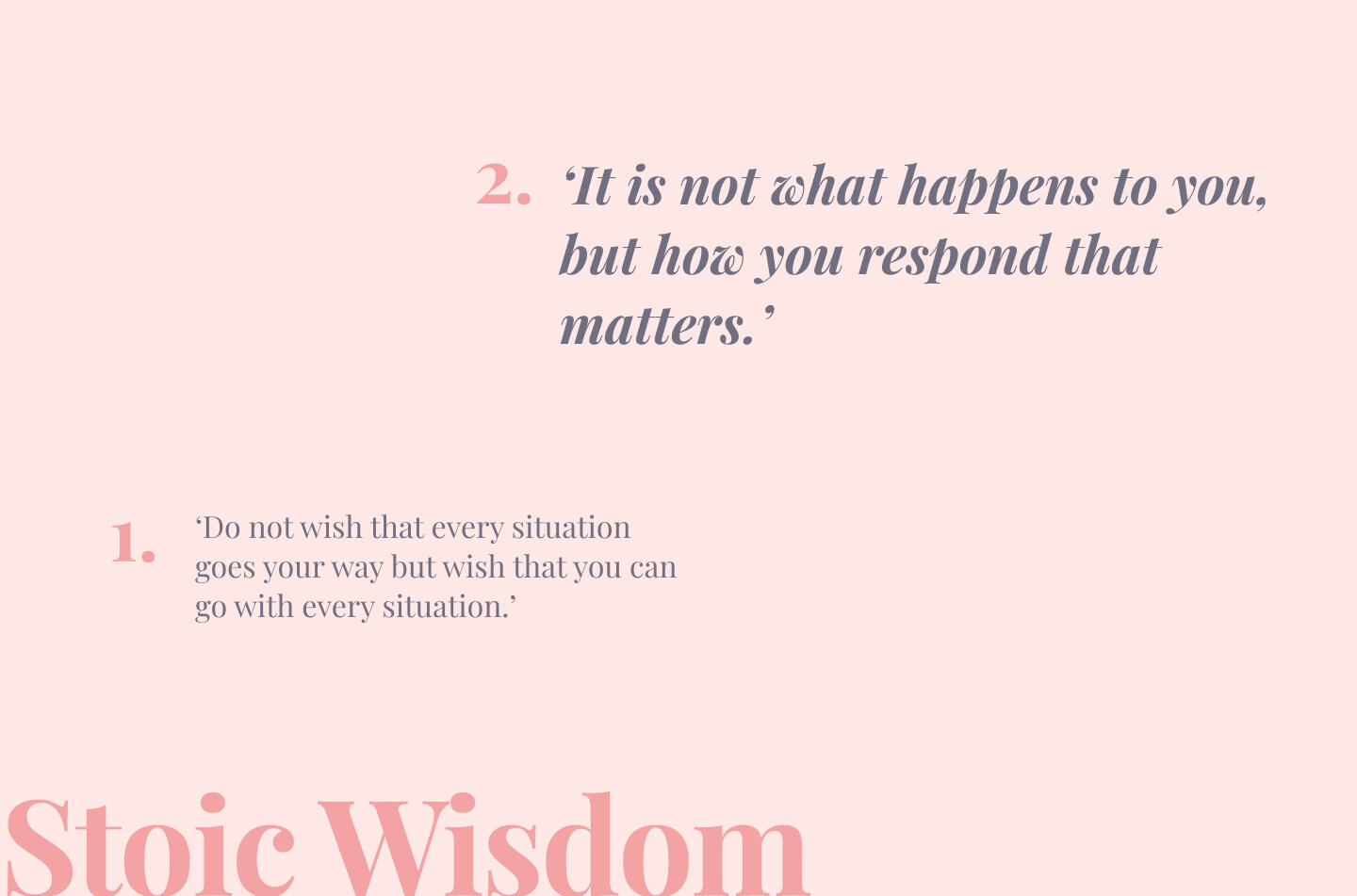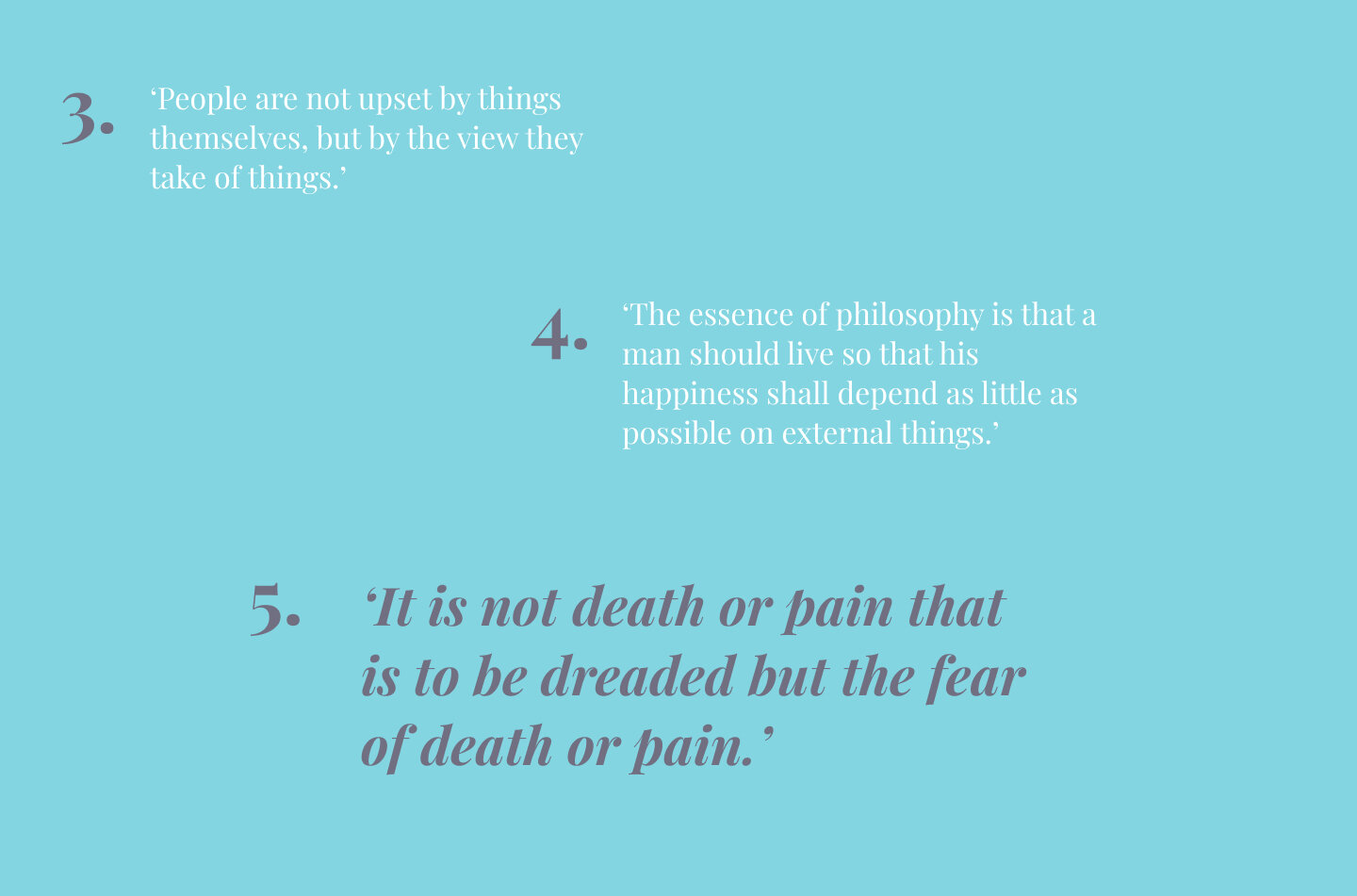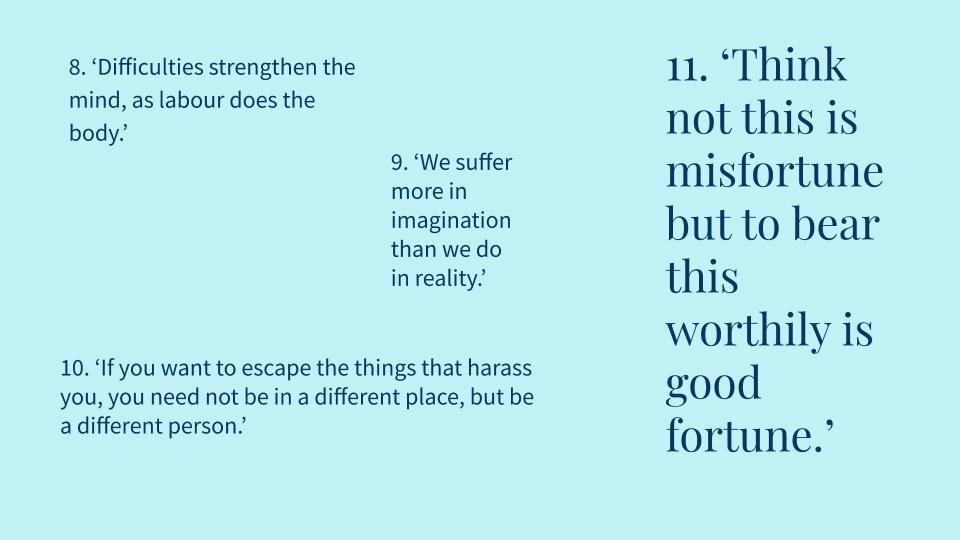1. Introduction to Stoic Philosophy
This blog is kicking off with a mini-series on Stoicism!
It was the Stoics that helped me the most when I was first diagnosed with cancer.
I hope you enjoy learning more about these wise men and their philosophy.
Have you heard of the Stoics before?
Maybe you have heard the word ‘stoical,’
which is widely used to describe someone who endures hardship without complaint.
This is what stoicism looks like on the outside. But this very modern description overlooks a critical component of Stoicism - the inner world of the Stoic.
When I was first diagnosed with cancer, the Stoics brought a lot of comfort. They encouraged me to take charge of my mind. And provided a methodology to move towards emotional stability when it seemed very far from my grasp.
This Article Answers 3 Questions
What is Stoic Philosophy?
How can Stoic Philosophy help me?
How can I find out more about Stoic Philosophy?
What is Stoic Philosophy?
The Stoic Philosophers were teaching in Ancient Greece and Rome more than 2,000 years ago. So this philosophy is at least as old as the Christian Bible. With its focus on beliefs, thoughts and behaviour, Stoicism is actually an early form of psychotherapy and the basis of modern day Cognitive Behavioural Therapy (CBT). See Psychotherapist Donald Robertson’s book for more information.
How Can Stoic Philosophy Help Me?
Stoicism provides a way to handle challenging situations. When I experience a distressing thought or feeling, remembering I have a system I can rely upon to ease emotional distress, is sometimes enough to begin to turn the tide on fear.
Many modern practitioners present Stoicism as a philosophy of emotional restraint and austerity. I experience it quite differently. For me it is a philosophy of emotional responsibility which leads us to experience the unlimited nature of our mind to solve our problems.
Typically, most of us perceive our state of mind to be dominated by external events. When external situations are to our liking, we experience happiness. When situations are not to our liking, we experience distress.
Not so say the Stoics.
Stoic philosophy tells us we have a filter between the outer world and our inner world.
This filter is made up of our values, our thoughts and our beliefs. The Stoics say it isn’t the situation out there that causes distress but the values,
thoughts and beliefs we hold about the situation.
The Stoics Know About Hard Times
The three most famous Stoic philosophers - Epictetus, Seneca and Marcus Aurellius
all experienced hard times. Seneca was accused of conspiring to kill Emperor Nero, forced to live alone in exile and ordered to kill himself. Epictetus was born into slavery and lived with a physical disability. And Roman Emperor Marcus Aurellius, lost five children and prioritised his state of mind and benevolence towards his subjects above his material comfort, in spite of great material wealth. And let’s not forget the brutal times in which these fellows lived; to be eaten by a lion while spectators looked on was a popular way to die.
The Basics of Stoic Philosophy
Stoic Philosophy can seem complicated but the 4 central ideas are this:
Some things are within our control and some things are out of our control.
Only our values, beliefs, thoughts and actions are within our control.
It’s our values, beliefs, thoughts and actions that cause suffering.
To ease suffering we can change our values, beliefs, thoughts and actions.
The Stoics claim it’s our values, beliefs and thoughts that form our perception and cause distress, not the circumstances we experience. And because we have free will to choose our values, beliefs and thoughts, peace of mind is possible no matter what we experience in the material world. What a welcome message of hope for anyone experiencing hard times.
How Can I Put This Theory Into Practice?
I recommend you experiment with this philosophy yourself. For me, simply repeating
the quotes that have the most meaning eases my distress. When an uncomfortable feeling like fear arises, I repeat a quote. Each Stoic quote leads to an arena where we have greater command - our values, beliefs and thoughts - and away from the fear and anger that can arise from attempts to manipulate an outcome that may not feel completely within our control.
Here are my some of my personal favourite quotes:
What Next?
So, over to you!
Take a look at the videos and links below.
Read the next article in this series.
Or explore Stoicism on your own. There are tons of resources online.
Read This!
Watch This!
Stoicism During the Corona Virus Pandemic, April 2020, the Guardian
Stoicism, the Revival, January 2020, Washington Post
How To Live in the Face of Fear, Kate Bowler, New York Times
Are You a visual learner or someone who enjoys parables?
This article explains Stoic theory via a diagram and shares a powerful story to convey the benefits of a Stoic mindset.
Let’s Discuss!
What are your favourite quotes?
How could this philosophy help you?
What don’t you like about Stoicism?












